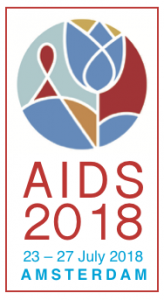FDA-approved compounds that might selectively reverse HIV latency
24 August 2018. Related: Conference reports, Cure-related research, World AIDS 22 Amsterdam 2018.
A late-breaker poster from researchers at UCSF in collaboration with Merck reported optimistic news that a selection of already FDA-approved small molecule compounds selectively activate latently infected cells in vitro.
The level of activity from some compounds was greater than romidepsin (the HDAC-inhibitor that has been previously used in human studies). The new compounds include sorafenib, sunitinib, axitinib, cabozantinib, regorafenib and carfilzomib that target new pathways (inhibiting VEGF, RAF-1, B-RAF and the proteosome). Importantly, they did not show global activation of uninfected cells, also shown in vitro in CD4 cells from HIV positive people on supressed ART.
Previously studied compounds have generated broad CD4 cell activation, but at too low a level to be able to show clinical impact in reducing the viral reservoir.
Unfortunately only limited information is available from the study abstract and the poster is not yet available to download from the conference website.
Ref: Munoz-Arias I et al. FDA-approved chemotherapeutic drugs that inhibit VEGF, RAF-1, B-RAF and the proteosome reverse HIV latency without global T cell activation. AIDS 2018, 23-27 July 2018, Amsterdam. Late-breaker poster LBPEA006.
http://programme.aids2018.org/Abstract/Abstract/13445


 Simon Collins, HIV i-Base
Simon Collins, HIV i-Base